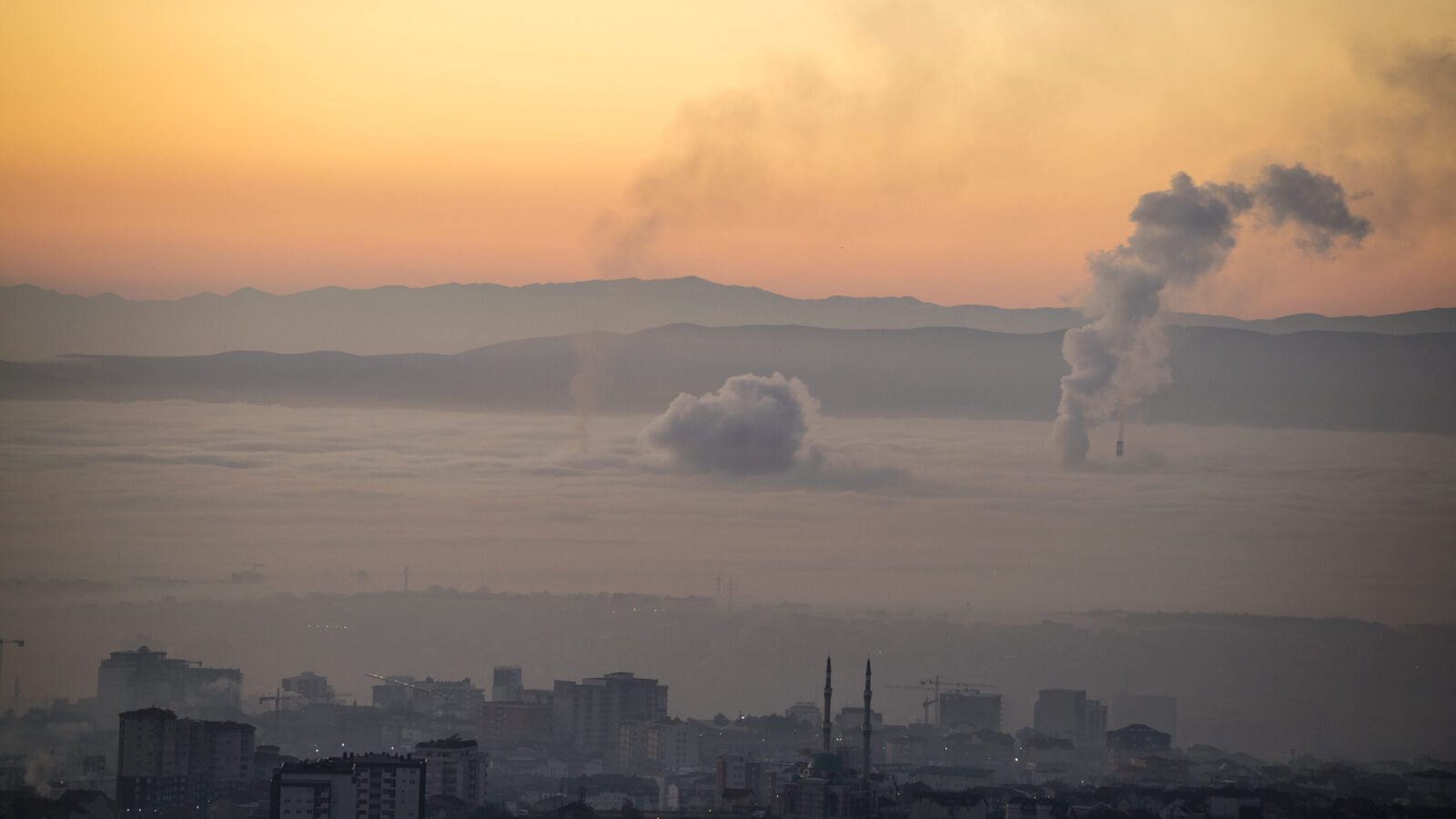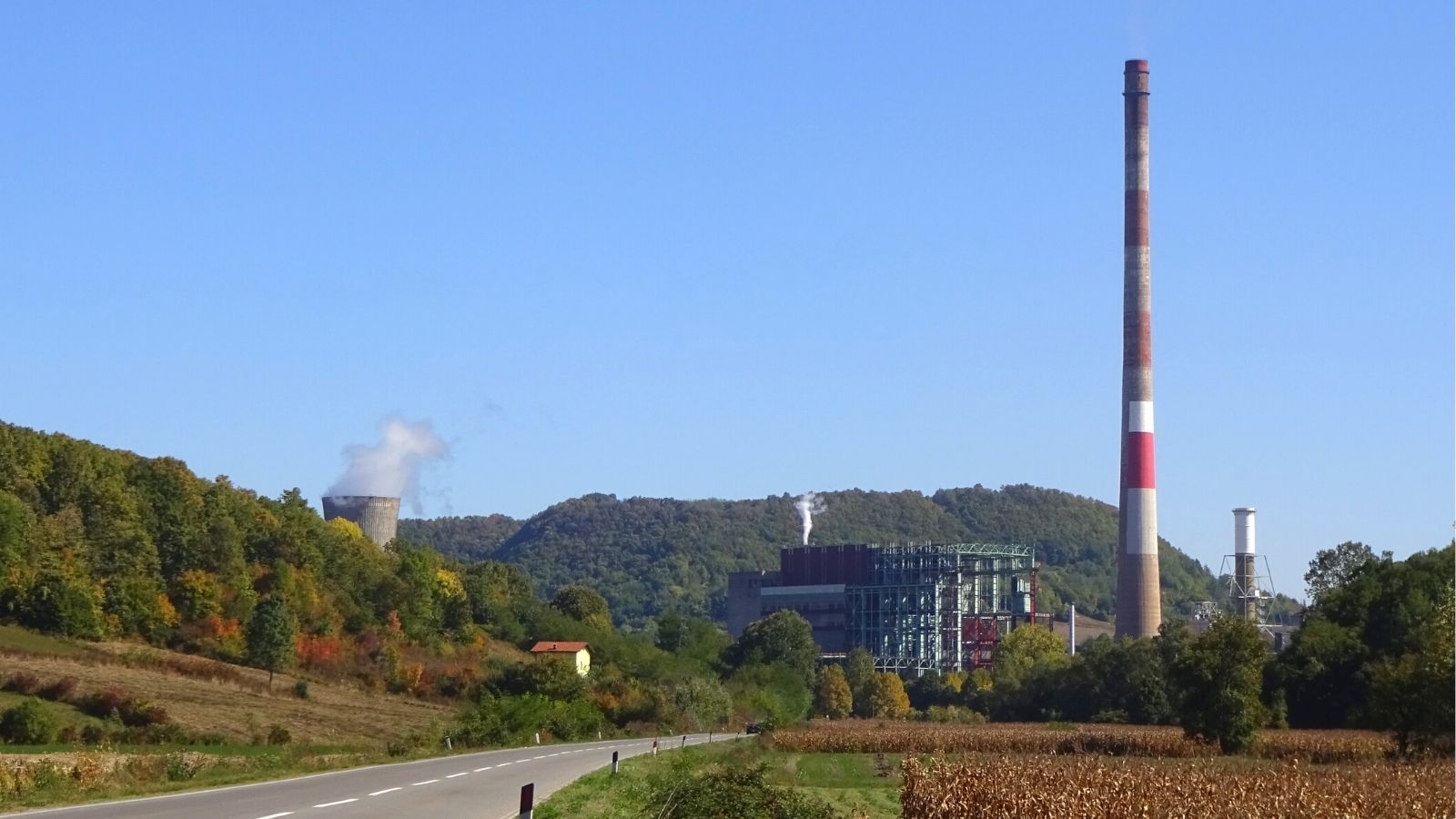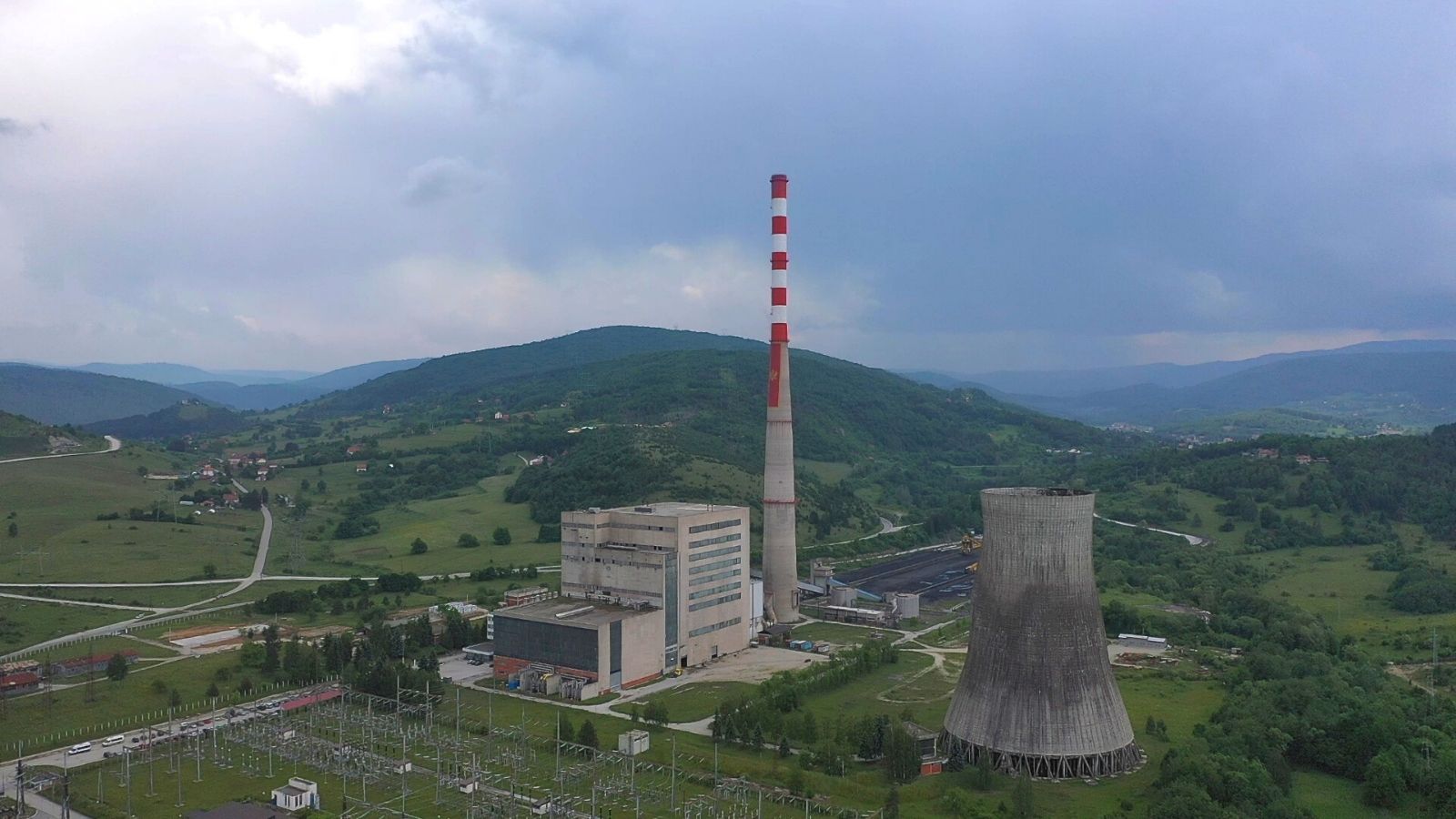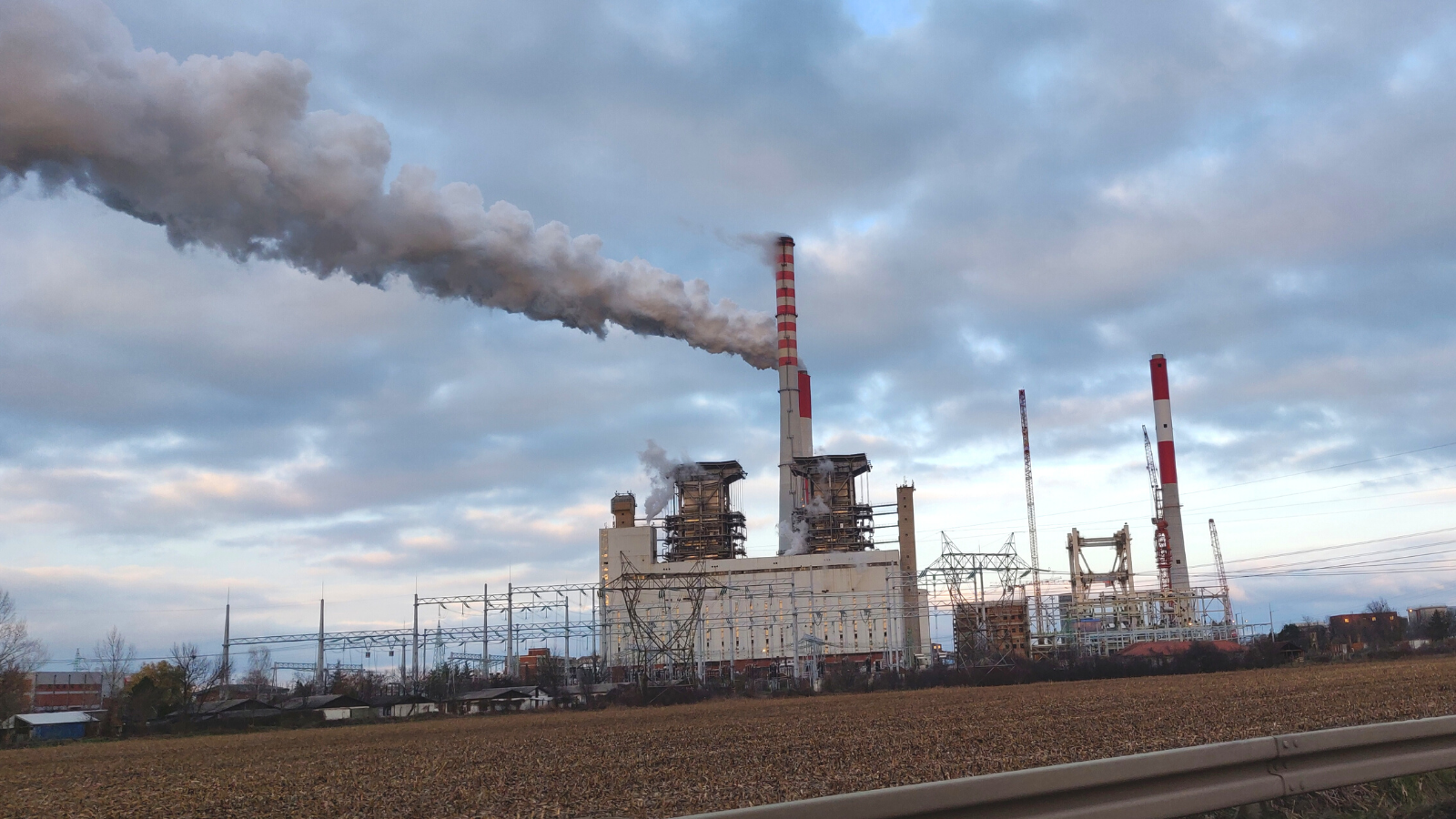Fossil fuels are fast losing their social license. It is becoming increasingly evident that countries’ continued reliance on dirty hydrocarbons escalates the climate crisis, worsens air pollution and enables war.
Long touted as a ‘bridge fuel,’ fossil gas now needs to be recognised by policymakers for the hurdle to the energy transition that it is, and multilateral development banks should urgently end support for gas projects and gas-dependent companies.
The energy transition has to be just and fast, with citizens, municipalities and workers as critical participants in the process. We are working to ensure no more public money is spent on coal, and public finance is used to accelerate this transition.
Stay informed
We provide updates in English from the Balkans and other coal regions.
IN FOCUS
Fossil gas
Fossil gas is the new coal. Although often labelled ‘natural,’ fossil gas is a major driver of the climate crisis. There is no more room for new investments in fossil gas projects if we are to avert the worst impacts of the climate crisis and set a path towards decarbonisation.
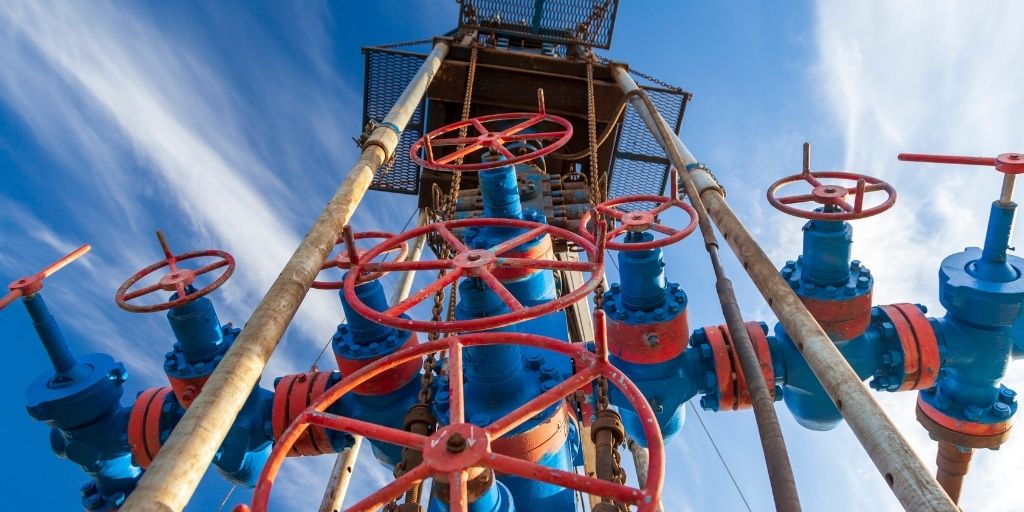
District heating
District heating and individual heating are still dominated by fossil fuels and inefficient burning of wood without regard to sustainability criteria, in combination with a low degree of energy efficiency. This has to change, since heating plays a crucial role in the transition into a clean and zero-carbon economy.
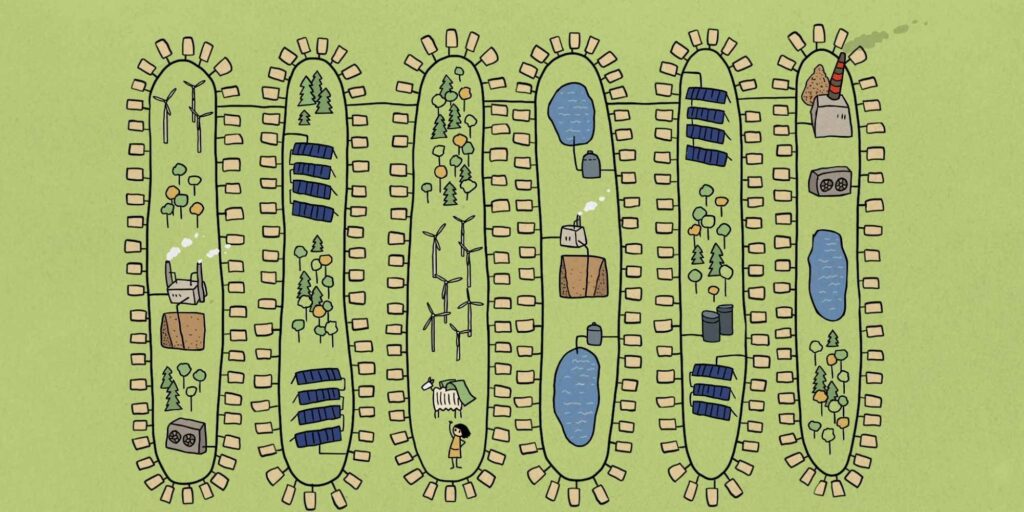
Just transition
No one should be left behind when we reconstruct our world into one driven by clean energy. Working on just transition brings all actors who believe in fair regional redevelopment to the same table: unions, industry, public administration, governments, civil society and others sharing this goal.

Modernisation fund
The Modernisation Fund can make a big difference. Redirecting future spending away from polluting energy sources while increasing support for sustainable energy investments would help Europe reduce emissions, slash air pollution, cut energy bills, improve energy security, and end the EU’s dependence on authoritarian regimes. To realise its potential, the Modernisation Fund needs to reform.
But will the EU seize the opportunity or leave its citizens to suffer the consequences?
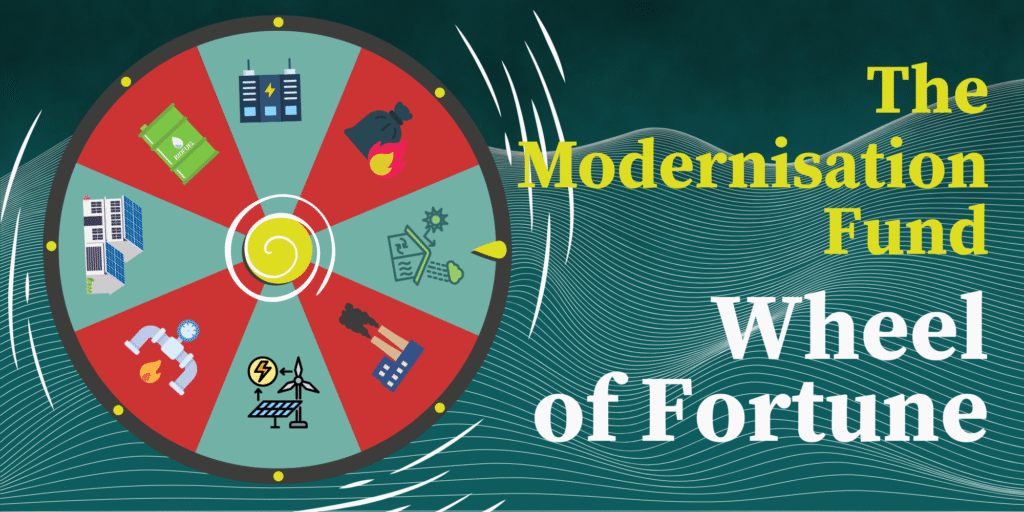
Documentary: Turning the Tide
Our documentary exposes, for the first time, the extent of financial support four of the world’s leading multilateral development banks (MDBs) – the World Bank, the European Investment Bank, the Asian Development Bank and the European Bank for Reconstruction and Development – have been providing to the global fossil fuels industry over the past 13 years.
Our analysis shows that since 2008, the oil, coal and gas business has been enjoying no less than EUR 81.5 billion in support from these government-owned financial institutions in the form of loans, grants, credit lines and guarantees.
Coal projects
Ugljevik power plant, Bosnia and Herzegovina
Commissioned in 1985, the 300 MW coal power plant in Ugljevik, Bosnia and Herzegovina, has become famous for emitting more sulphur dioxide than all of Germany’s coal power plants in 2019.
Pljevlja I power plant, Montenegro
The existing 225 MW Pljevlja thermal power plant in the north of Montenegro, near the borders with Serbia and Bosnia-Herzegovina, has been operating since 1982. The plant was originally planned to comprise two units but the second one was never built. The plant, along with the extensive use of coal and wood for heating, has caused unbearably bad air quality in the town.
Kostolac B power plant (B1, B2), Serbia
The Kostolac B power plant, consisting of 2 units of 350 MW each, first started operating in 1987. In 2024, the plant delivered 4359 GWh of electricity to the grid, around 14 per cent of the country’s coal-based generation.
Latest news
Romania’s gas trap: Fossil fuel expansion threatens clean energy transition
Blog entry | 14 January, 2026The Romanian government is pursuing an increasingly contradictory energy strategy. On the one hand, it is preparing to heavily exploit Black Sea gas to increase consumption and drive industrial growth. On the other, it must meet ambitious targets for renewable energy, decarbonisation and energy consumption.
Read moreKambarata hydropower project: greater scrutiny from international banks is needed
Blog entry | 19 December, 2025Kyrgyzstan is promoting the massive 1,860 MW Kambarata-1 Hydropower Plant (HPP) as a solution to its ongoing energy crisis. The project, a joint effort with Uzbekistan and Kazakhstan on Naryn River, is actively seeking funding from international financial institutions like the World Bank, the European Bank for Reconstruction and Development (EBRD) and the European Investment Bank (EIB).
Read moreEU climate fund commits over half a billion to fossil gas expansion
Press release | 18 December, 2025Several fossil gas and waste incinerator projects eyed by EU Member States have rightly been excluded from the latest Modernisation Fund investment round. But gas-fired power plant projects in Czechia and Bulgaria have secured a total of EUR 630 million in future financing.
Read moreRelated publications
Flawed by design: How the Connecting Europe Facility still backs the fossil-fuel industry
Briefing | 8 July, 2025 | Download PDFWe expose the role of the Connecting Europe Facility, a little-known EU infrastructure fund, in feeding the hydrogen hoopla.
Why the EBRD’s financing for the Greece to North Macedonia gas interconnector cannot be considered Paris-aligned
Briefing | 23 June, 2025 | Download PDFThis briefing shows that the ‘Regional Gasification Project’ cannot be considered to be aligned with the Paris Agreement, despite the EBRD’s claims.
Comply or Close 2025: Seven years of deadly legal breaches by Western Balkan coal plants
Report | 17 June, 2025 | Download PDFThe end of 2024 marked seven years since the deadline passed for power plants in the Western Balkans to meet new air pollution standards.
